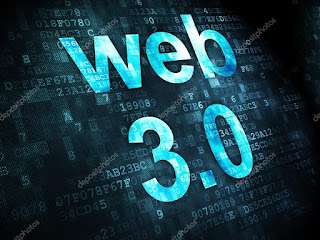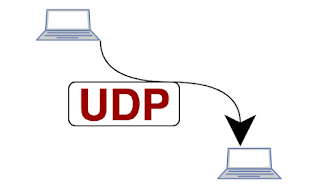Web 3.0
Web 3.0
Web 3.0 is one of those buzzy terms that have become shorthand for "the future."
it's long been sweeping the Web, but not many people understand what it actually means
➧Web 3.0
A little background : to understand Web, you'll need to have a working understanding of the Web 1.0 and 2.0 that came before.
Web 1.0 hearkens back to the early days of the internet. You know, the dial up days of old, where AOL CDs were dumped on the U.S. en masse.
2.0 is the current state of the Web- where streaming and social media region supreme and dial-up is a thing of the distance memory. Broadband connections and reliable Wi-Fi replaced shrieking modems and google became the go-to search engine.
Techopedia defines Web 3.0 as the " new paradigm in Web interactions." It makes the next phase in web development and will shake up how people create and interact with websites.
No, Web 3.0 doesn't come with a specific definition, as we're not quite there yet. But , what's notable about this next internet is it's predicted to be a total reinvention of the web, not an upgrade like 2.0 was.
➧ When is Web 3.0 supposed to happen.
The transition from Web 1.0 to Web 2.0 didn't happen overnight, we can except the same for Web 3.0.
Additionally, Web 3.0 is likely to be a bigger more dramatic change than its predecessors and change, on this scale, takes time.
The latest application of AI, the long list of block chain projects, and advance in natural language processing,.
➧ So what is this great new web supposed to look like.
A lot of the Web 3.0 talk is tinged with shades of blockchain buzz. For example, a huge part of this conversation looks at the idea of a decentralized internet, a place we stand to region control over our data and security breaches become a thing of the past.
Proponents of the blockchain web say we'll never deal with data interruption again. Or, that we'll finally be free from centralized corporate ISP control.
One of the biggest flaws of Web 2.0 is the fact that our data is owned by a handful of private companies. Facebook data breaches and a long list of famous hacks have made headlines in recent years, proving that we can't exactly trust media giants to keep us safe.
As such, a blockchain- based web presents an attractive solution. Decentralizing protects against potential breaches, as data is distributed across several database, rather than one central hub, as it is today,
Beyond these predictions, here are a few concepts we've seen linked to Web 3.0 time and time again.
➧ Parting Thought
Ultimately, Web 3.0 presents a secure, connected experience that eliminates a lot of the friction involved with many online processes today. Still, it's hard to point at the place where the fantasy diverges with the reality of the future internet-and by extension, hoe it will impact our lives.
There's no doubt that the internet is changing. However, like concepts like the blockchain and artificial intelligence, there's a lot of buzzy you'll need to sift through before you can uncover the reality of the next phase.



Comments